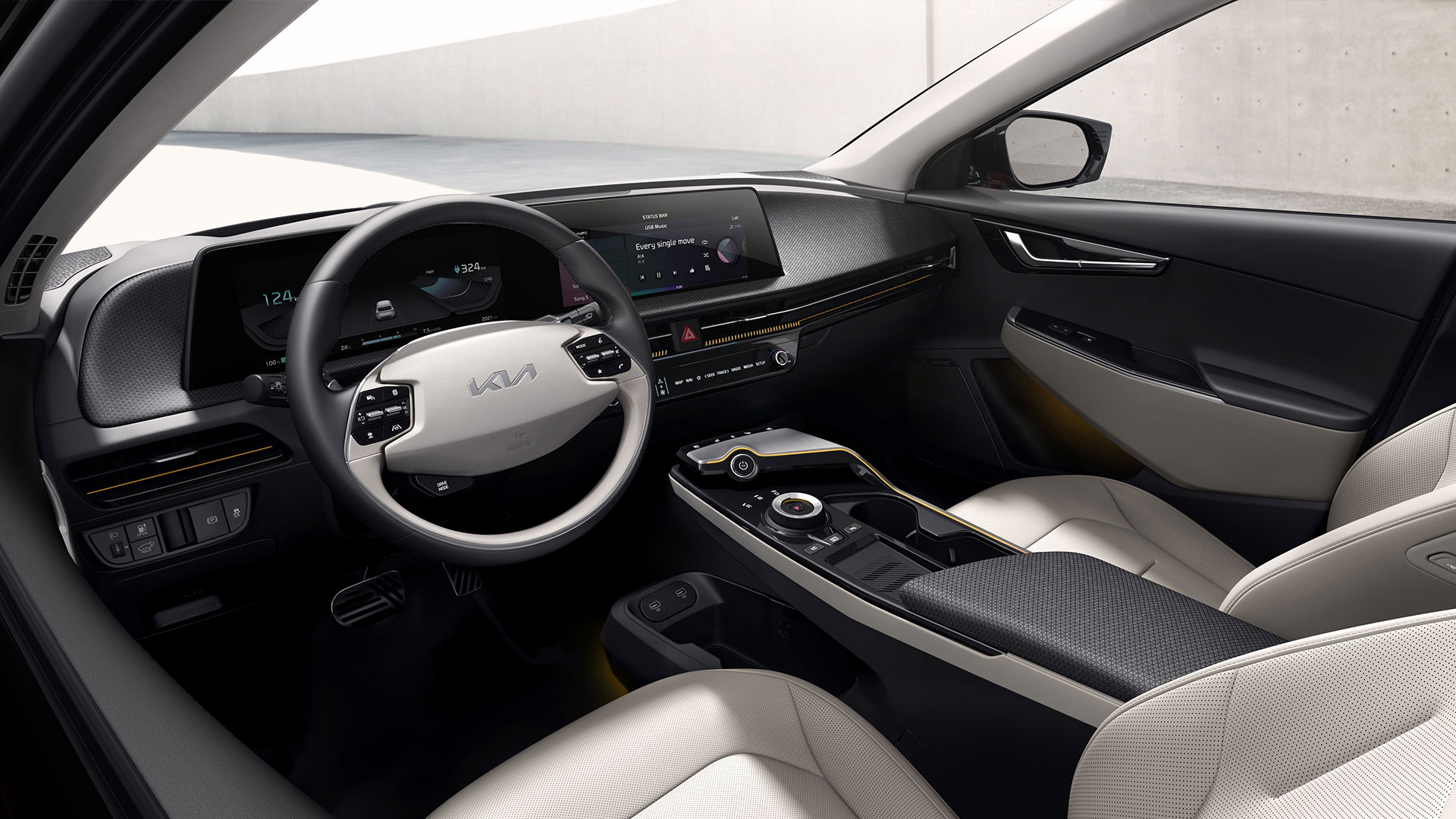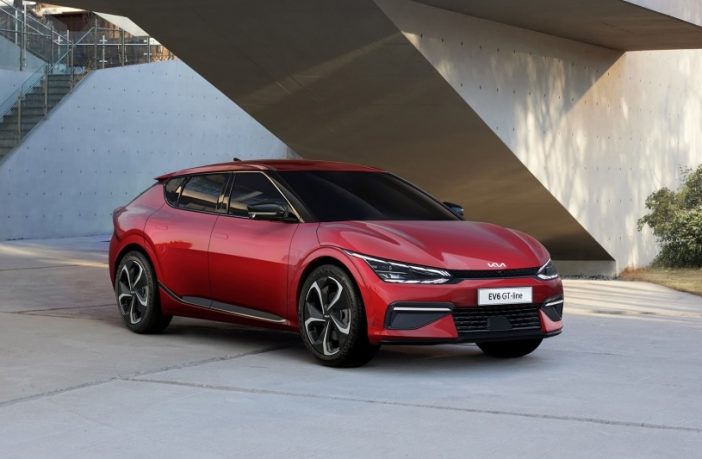- Korean car maker, Kia, has launched the new EV6 fully electric vehicle which brings long-range, zero-emissions power, 800V ultra-fast charging and distinctive styling to the crossover SUV market.
- The EV6 is Kia’s first car to be based on the company’s dedicated new platform for battery electric vehicles (BEVs).
- Kia is considering bringing EV6 to South Africa.
The pioneering crossover – the first dedicated BEV launched under the new Kia design philosophy ‘Opposites United’ – displays a future-oriented EV design characterized by high-tech details. It is powered exclusively by electric energy, with a choice of multiple long-range, zero-emissions powertrain configurations. The 800V charging capability means EV6 can go from 10 to 80 percent battery charge in just 18 minutes, while the GT version, engineered to inspire consumers with exciting driving performance, can accelerate from 0-to-100 km/h in 3.5 seconds with a top speed of 260 km/h.

KIA EV6 fully electric crossover SUV interior. Image credit: KIA
The EV6 is the first dedicated BEV produced by Kia using the all-new Electric-Global Modular Platform (E-GMP), and forms the first part of Kia’s transition to the new era of electrification under the new brand slogan, ‘Movement that inspires’. It also begins the mid-to-long term strategy for BEVs, plug-in hybrid (PHEV) and hybrid electric (HEV) vehicles to make up 40 percent of Kia’s total sales by 2030, with an annual sales target of 1.6 million units for these eco-friendly models. As part of this, Kia aims to grow its BEV sales to 880,000 units in 2030 and become a top global seller. EV6 is the first of 11 new BEV models from Kia by 2026 – seven built on E-GMP architecture, and four derivative EVs based on existing models.
“EV6 is the embodiment of the new Kia. It is born to inspire every journey, through bold design, progressive engineering, innovative technologies, and exciting electric performance,” Ho Sung Song, Kia’s President & CEO said. “EV6 also represents the beginning of Kia’s long-term commitment to sustainable mobility, accelerating the transition not only to clean transportation, but also products, materials and manufacturing.”
The EV6 will be produced in South Korea. It will go on-sale in select global markets starting from the second half of 2021, with online reservations beginning from March 30 in some markets.
Related news: Mass rollout of EV’s can lead to lower insurance premiums
Kia has announced that it is considering bringing the EV6 to South Africa. For now, they will bring one EV6 to gather intelligence and conduct feasibility studies. If introduced, they will join
BMW (i3), Jaguar (I-Pace), Porsche (Taycan), Mini (Cooper SE), Audi (E-Tron), BMW (iX3) and Mercedes-Benz (EQC) as the only other vehicle manufacturers to introduce a fully electric vehicle to the domestic market.
SA market not very responsive to electric vehicles
According to the 2020 Electric Vehicle Buyers Survey, conducted by AutoTrader in partnership with smart mobility solutions provider Generation.e, the local market is lukewarm to EV’s.
The study found the main areas which require serious attention to create favourable conditions for the EV industry in SA, according to respondents, are: high cost of purchase (64.9%), lack of national charging infrastructure (61.2%), charging time (59.6%) and the impact of load-shedding (54%).
Other issues which deter consumers from investing in EVs are range anxiety and high import tariffs as a result of the lack of government subsidies.
Author: Bryan Groenendaal















